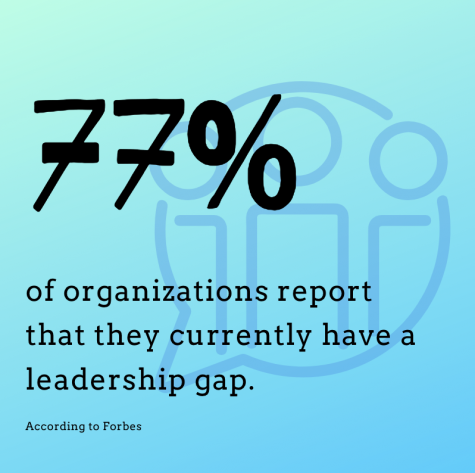Middle of the pack: Why being labeled as a leader or a follower is wrong
Being a follower versus being a leader
November 22, 2019
Would you consider yourself to be a leader or a follower?
Most of us would like to say the first option. We want to consider ourselves proactive, good at time management, empathetic — the qualities that leaders should have.
 As children, we’re told to dream big. We’re told to leave a legacy and a lasting impact on the world. We’re told to become the next Bill Gates, the next Charles Dickens, the next Albert Einstein. Our society places such a large emphasis on distinguishing ourselves as leaders that we have no choice but to be swept up in a sometimes futile chase.
As children, we’re told to dream big. We’re told to leave a legacy and a lasting impact on the world. We’re told to become the next Bill Gates, the next Charles Dickens, the next Albert Einstein. Our society places such a large emphasis on distinguishing ourselves as leaders that we have no choice but to be swept up in a sometimes futile chase.
We join clubs and sports teams, but for many of us, we only truly feel like we can validate our accomplishments when we earn a leadership position — officer of Octagon, captain of the basketball team, editor-in-chief of the school magazine.
We all want to be leaders, but how can we all be leaders if there are no followers?
At first, this line of questioning seems completely valid. After all, followers are just as crucial and should be as valued as any leader. A leader is nothing without the support of those that listen to them, so being a follower should be perfectly acceptable.
However, this question only serves as an excuse for those who don’t consider themselves as followers. It highlights the true problem that’s been ingrained into our minds — that a person either is or isn’t a leader. It’s just another example of the obsession society has with labels, another broad topic forced into a narrow dichotomy. Being a leader and a follower are always thought of as being mutually exclusive, when it’s very likely that an individual can switch between the two, or show characteristics of both in different situations.
We shouldn’t have to force ourselves to act based on the prospect of gaining a leadership role. On paper, being a captain or officer seems to involve much more dedication than just being a member of an organization, but life isn’t just a job description. The reality of the situation is that being a leader is a choice, and it’s directly connected with being a follower as well.

We should all have certain specializations so we’re leaders in some and followers in others. When we’re clueless and confused, it’s perfectly OK to stick with a follower role, to pay attention to and respect those who are clearly more experienced. However, when we are in an informed, confident position, we should help others get to that position as well— even if we don’t have to.
Besides, if we need the incentive of having some type of label or name to become a leader, aren’t we acting against the very foundations of what a leader should be? Instead of relying on the unending pressure of public image to motivate us, shouldn’t we, as leaders, have a genuine desire to help and lift others up?
Leadership has turned into an implicit act of selfishness, where we only choose to follow altruism if we somehow benefit ourselves. There’s no specific time or experience level necessary to take action — we can’t just decide to take on responsibility and follow our morals when we feel like it.
Because even though we’ve been taught that going above and beyond is extra credit, it’s a requirement to being a leader.
So really think about it. Would you consider yourself to be a leader or a follower?
If your answer is the former or the latter, think again. Our world isn’t in black and white, so how can we expect to behave in such a one-dimensional way?



























